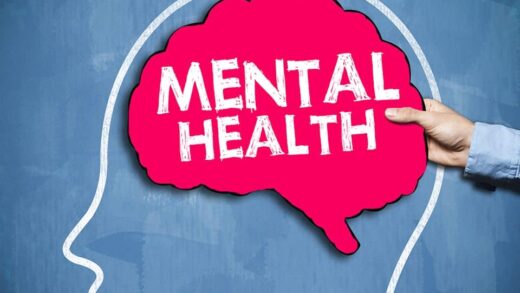Whether a person is rich or poor, everyone has dreams in their life, some goals they want to achieve. If a person is poor, their dreams may revolve around material possessions such as a good home, a car, a bank balance, and more. And if someone is wealthy, they may aspire to accumulate more wealth, power, or even seek emotional relationships. But to achieve all these different dreams and goals, there is one essential thing required.
You might say it’s determination! Self-confidence! Hard work! Yes, you are right. But all of these things come after the one thing that is essential, and that is “good health.” Without good health, every goal in life remains incomplete, and sometimes, it may never be achieved.

In the pursuit of health, we often prioritize different aspects. It’s possible that we only think about health when we are ill, which means we consider ourselves healthy when we are symptom-free. But what does good health really mean? Perhaps, it means being free of any illness, but it also means having control over the symptoms if they do arise. Modern medical science has made it easier to deal with illnesses and their symptoms. It assures us that if we have a problem, we can get treatment for it. But what about achieving true and lasting health?
First, we need to define what true health is. Maybe we think that being healthy means having no illnesses, and that being symptom-free is the definition of health. However, achieving true health goes beyond these definitions.
Good Health is based on our awareness of it and several good habits. So, how do we obtain accurate information about health and adopt a lifestyle that supports it? This is a significant question because modern medical science mainly focuses on treating illnesses and lacks a comprehensive approach to preventing them.
Take diabetes, for example, where blood sugar levels rise beyond normal. This can lead to damage within the body. While modern medical science offers various medications to control blood sugar levels, the research on how to prevent diabetes or halt its progression is relatively limited and requires a significant amount of time and money.
Apart from physical health, we also need to consider mental health, as conditions like heart disease, diabetes, obesity, skin diseases, digestive problems, cancer, and depression surround us and affect our well-being.
To fight these diseases, today’s humans are increasingly looking towards natural methods that are in sync with our body’s natural processes. These internal processes are mostly self-regulated (automated), which means we cannot control them ourselves. However, to work effectively, these internal processes also require suitable internal environments or conditions.
For example, a factory needs to maintain an environment where workers can efficiently operate the machines, and this environment should be comfortable enough for them to work easily. Similarly, our internal body processes work best when they have the right internal conditions. And if we provide only suitable conditions, our bodies are smart and strong enough to manage themselves and keep us free from diseases.
For thousands of years, humans have survived on Earth by adapting to various geographical and artificial challenges. This adaptation involves maintaining their natural balance, which includes proper nutrition, movement, and rest. These three aspects are crucial for achieving and maintaining good health.
Nowadays, when we disrupt these three aspects in our current lifestyle, we unknowingly invite diseases into our bodies. However, when we calmly consider these three aspects, it becomes evident that we have unintentionally neglected them.

Apart from this, many other factors need thorough understanding and careful consideration. Developed nations’ governments are also quite concerned about the future and the current health crisis affecting their populations. Moreover, on a personal level, we are burdening ourselves and our families with health problems, both financially and emotionally.
The numbers speak for themselves. We are unknowingly compromising these three aspects (nutrition, movement, and rest) on a massive scale. This realization should prompt us to make necessary changes and prioritize our health.
Besides, governments of developed countries are also deeply concerned about the future as well as the current health crisis affecting their populations. We must remember that our personal choices affect not only us but also our families in terms of financial, mental, and emotional health.
These are not just statistics; these are real issues that require attention. So, we must reconsider how we approach health and embrace a lifestyle that supports it. We have lived on this planet for thousands of years, adapting and surviving. Our bodies have always maintained their balance when provided with the right conditions. We must respect and align with our bodies’ natural wisdom to lead a healthy, fulfilling life.
This requires understanding and implementing a holistic approach to health, one that encompasses not only the absence of illness but also the presence of well-being. We need to consider and adopt practices that allow our internal processes to function optimally and maintain a harmonious balance within our bodies. By doing so, we can live a life free from the burdens of preventable diseases.
In the upcoming articles, we will delve deeper into these aspects and explore how we can adopt and maintain a lifestyle that truly supports health.”
- “ये है पुरुषों का सबसे बड़ा दुश्मन” | Adjustment of the Male by Arvindsinh Rana
- मानसिक समस्याओ से बचने के लिए इन 5 चीजों पर जरूर ध्यान दे | Tips from Psychologist
- 5 Signs of Happy Marriage Life | By Arvindsinh Rana
- क्या रोज शराब पीने वाले लोग कमजोर होते है? Psychology of an Alcoholic
- ये 5 कारणों से होती है पैसों की कमी । क्या आप जानते है?





2 Responses
[…] Now that we understand the importance of our health, let’s take another step forward. […]
[…] The True Value of Good Health: Don’t Take it For Granted! […]